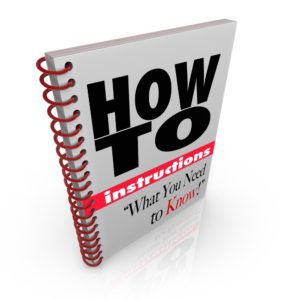By Rose O. Sherman, EdD, RN, NEA-BC, FAAN
 Last May I wrote a blog about putting together a Users Guide to You as a manager. The purpose was to serve as a way to help staff learn about you, your style and what you value. I first heard about this idea in blog post by Julie Zhuo who recommended that leaders create a How to Work with Me manual. Since that time, I have used this idea in our ANA New Nurse Manager program and the participants have raved about it. One new manager recently emailed me and told me that it had saved her so much time and reduced misunderstandings. She said as issues come up – she adds or elaborates to questions in the manual. She is introverted so in her introduction to herself – she tells her staff this and explains why some times she may need to go into the office to regroup and re-energize. Before I explained this,she laughed, some of my staff thought I was a snob or just antisocial.
Last May I wrote a blog about putting together a Users Guide to You as a manager. The purpose was to serve as a way to help staff learn about you, your style and what you value. I first heard about this idea in blog post by Julie Zhuo who recommended that leaders create a How to Work with Me manual. Since that time, I have used this idea in our ANA New Nurse Manager program and the participants have raved about it. One new manager recently emailed me and told me that it had saved her so much time and reduced misunderstandings. She said as issues come up – she adds or elaborates to questions in the manual. She is introverted so in her introduction to herself – she tells her staff this and explains why some times she may need to go into the office to regroup and re-energize. Before I explained this,she laughed, some of my staff thought I was a snob or just antisocial.
So this idea bears repeating.
Sample Contents to a User’s Guide to Working with You
Introduction – Provide a little background information about yourself and why you are writing the guide. What are your goals for the manual?
How do I view success – What are the values that underpin your understanding of success. What is your leadership philosophy that drives your management style?
How I communicate – What is your communication style? What are your preferred methods of communication (in person, email, text, phone)? How do you like to conduct staff meetings and what are your expectations around staff participation? Are there any aspects of communication that you are weak in but working on (ex. abrupt in conversations, very direct communicator, too much processing before making a decision)?
Things I do that may annoy you or be misunderstood – What are some of the things about your leadership style that your staff may misunderstand or your quirks that could unintentionally annoy a different personality type (ex. are you introverted, do you dislike small talk, do you like to know about your staff member’s families?)
What gains or loses my trust – What qualities do you value that help build trust? What are the triggers that cause you to lose trust (ex. gossiping, failing to keep commitments, not communicating absences promptly).
What are your strengths – What do you love to do and can help others with (ex. coach staff, teach, de-escalate crisis situations).
What are your blind spots or areas you are working on – If you are working on weaknesses that staff can help you with – let them know (ex. develop more tact, be more timely with feedback, reminders about following up on unit problems).
What are your expectations of staff – What do you consider professional behavior? Do you have expectations of your team that might be different than other managers? What is great customer service from your perspective?
What is your philosophy about giving and receiving feedback – How do you provide coaching and feedback (just in time or on a more scheduled basis)? How should staff give you feedback if there are problems on the unit? What are your expectations around teamwork and conflict resolution?
Read Rose Sherman’s new book available now – The Nurse Leader Coach: Become the Boss No One Wants to Leave
© emergingrnleader.com 2020


 LinkedIn
LinkedIn Instagram
Instagram